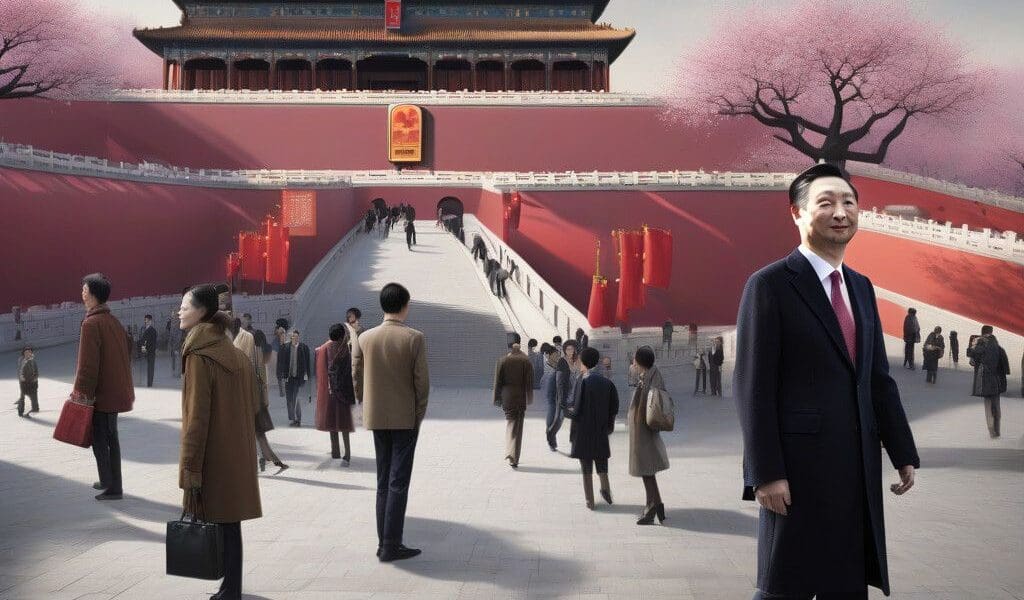Apple CEO Visits Beijing Amid Competition from Huawei
Tim Cook, the CEO of Apple, recently made headlines during his visit to Beijing, where he met with China’s Minister for Industry and Information Technology, Jin Zhuanglong. This meeting carries notable implications for the tech giant, particularly as it seeks to strengthen its foothold in China amid mounting competition from local rival, Huawei.
The Chinese government has made it clear that it hopes for continued collaboration with Apple, promoting the idea of increased innovation investments. As China remains one of the most significant markets for Apple, the company’s strategic decisions here are closely watched by both industry analysts and investors. The meeting, however, comes at a pivotal time when Apple is trying to navigate the competitive landscape dominated by Huawei’s latest offerings.
Cook’s trip to China this year is significant as it is his second visit within a few months. While in Beijing, he took the time to engage with local artists and connect with the culture, sharing his experiences on the popular social media platform Weibo. These gestures not only foster goodwill but also resonate positively with the local audience, which is crucial for Apple’s branding in a competitive market.
The timing of Cook’s visit is particularly telling. Apple’s latest iPhones were launched on September 20, coinciding with Huawei’s release of its popular Mate and Pura smart devices. This overlap is no coincidence; both companies are vying for consumer attention during peak smartphone purchasing seasons in China. Early reports indicated a 20% increase in iPhone sales compared to the previous year, suggesting that Apple initially managed to capture interest despite the competitive launches.
However, overall smartphone sales for Apple in China have experienced a decline of 2% year-over-year, primarily attributed to reduced interest in older model iPhones and the growing popularity of Huawei’s latest smartphones. The Mate and Pura series have particularly struck a chord with consumers, capturing significant market share and affirming Huawei’s standing in the tech landscape. For instance, the Mate 60 Pro has been touted for its impressive features, which include advanced camera capabilities and innovative operating systems, making it a formidable competitor against Apple’s offerings.
To retain its customer base, Apple must continue to innovate and adjust its strategy in response to market conditions. The company has been focusing on enhancing its services and integrating new features that appeal to the Chinese consumer’s preferences. For example, Apple Pay and various other localized services are becoming increasingly important as part of its value proposition in China’s ecosystem.
Moreover, Apple’s engagement with Chinese suppliers and technology partners can help foster more localized production and feature development that resonates with Chinese buyers. As Cook discussed potential future collaborations with Jin Zhuanglong, industry stakeholders noted that these partnerships could be integral in not just boosting innovation but also in contending with homegrown competition that has successfully captured consumer loyalty.
As the landscape changes rapidly, both Apple and Huawei are likely to continue influencing each other’s strategies. For instance, Apple’s approach to gathering consumer data and preferences can be adjusted based on insights gained from how Huawei tailors its own products and marketing to Chinese consumers. This real-time feedback loop between the two tech giants will shape their respective market strategies as they engage in head-to-head competition.
In summary, Tim Cook’s Beijing visit symbolizes much more than a simple meeting; it highlights Apple’s commitment to sustaining its presence in one of its most crucial markets. The competition with Huawei serves as a reminder of the need for continuous innovation and strategic relationships to maintain relevance. In an environment where consumer preferences are swiftly changing, adapting to meet these demands could be the key to determining who emerges victorious in this ongoing battle for market dominance.
Tim Cook and Apple are at a crossroads in China, where local competition and consumer expectations are high. The road ahead is fraught with challenges, but with a focus on collaboration and innovation, the tech giant may still hold its ground against formidable rivals like Huawei.








